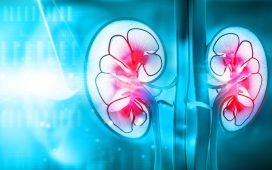Cesarean delivery accounts for one-fifth of the risk of severe acute maternal morbidity
THURSDAY, May 23, 2019 (HealthDay News) — Women with twin pregnancies have a four-fold increased risk for severe maternal complications both before and after delivery, compared to women with singleton pregnancies, according to a study published online May 9 in Obstetrics & Gynecology.
Hugo Madar, M.D., M.P.H., from the Center for Epidemiology and Statistics Sorbonne Paris Cité, and colleagues used data from the EPIMOMS prospective study conducted in six French regions from 2012 to 2013 (182,309 deliveries). The association between twin pregnancy and severe acute maternal morbidity was examined among 2,500 women with acute maternal morbidity (occurring from 22 weeks of gestation up to 42 days postpartum) and a random sampling of 3,650 without acute maternal morbidity.
The researchers found that the population-based incidence of severe acute maternal morbidity was 6.2 percent in twin pregnancies and 1.3 percent in singleton pregnancies. The risk of severe acute maternal morbidity was higher in twin than in singleton pregnancies when adjusting for confounding variables (adjusted odds ratio, 4.2). Findings were for both antepartum and intrapartum or postpartum, and regardless of the causal condition (severe hemorrhage, severe hypertensive complications, or other conditions). For twin pregnancies, cesarean delivery mediated 20.6 percent of the total risk of intrapartum or postpartum severe acute maternal morbidity.
“Increasing the rate of vaginal deliveries in twin pregnancies, unless there is an obstetric or fetal indication otherwise, may decrease the rate of severe acute maternal morbidity in these women,” the authors write.
Copyright © 2019 HealthDay. All rights reserved.








